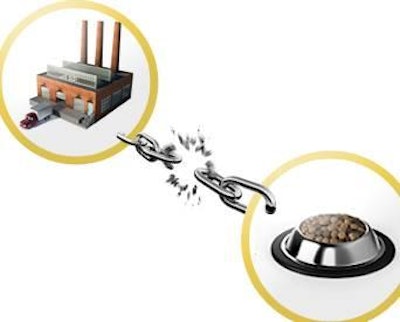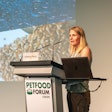
As the former director of both the US Food and Drug Administration’s Center for Veterinary Medicine and Center for Food Safety and Applied Nutrition, I have seen my share of pet and human food outbreaks caused by defective supply chains. In 2007, the largest petfood recall in history resulted from a single ingredient—wheat gluten—that had been intentionally adulterated with melamine for economic gains. The petfood manufacturer had recently switched suppliers of wheat gluten, enticed by a bargain price. It was estimated that 5,300 petfood products were recalled and hundreds or thousands of cats and dogs were injured or killed.
In 2009, the Peanut Corp. of America (PCA) issued one of the largest food recalls in history for peanut products that might contain Salmonella from the company’s contaminated factory in Blakely, Georgia, USA. A total of eight deaths and more than 500 illnesses were reported in 43 states. The recall included 3,200 products— from more than 200 companies, including pet treat companies—that contained PCA’s tainted peanuts.
Supply chains have become increasingly expansive, complex and, in many cases, opaque. Foreign suppliers often source their products from numerous small farms or manufacturers whose identities are lost when the products are comingled. Many companies rely on certificates of analysis from their suppliers for assurance that the products meet specified criteria, including food safety criteria.
In both the melamine and PCA outbreaks, certificates of analysis were falsified. ChemNutra sold and shipped the melamine-tainted Chinese wheat gluten to petfood manufacturers with a certificate of analysis indicating the product was at least 75% wheat gluten. PCA sent certificates of analysis to its customers indicating the product had tested negative for Salmonella, even though the company had not yet received the testing results from its contract laboratory.
Reliance on audits of suppliers by private, third-party companies carries no guaranty that the products were produced under good manufacturing practice (GMP) standards. Even food company giants like Kellogg have learned this lesson the hard way. Kellogg and other companies required PCA to have its manufacturing plant audited by independent inspectors as a condition of its purchasing contract. PCA hired AIB International to conduct a one-day inspection, after which the inspector concluded, “The overall food safety level of this facility was considered to be superior.”
Yet, when FDA inspected the plant during the outbreak, it found numerous GMP violations, including rodent infestation and roof leaks where rain water was observed dripping into the plant’s peanut processing areas. Nestlé audited the PCA plant in 2002 and rejected it as a supplier. The audit report said the plant needed a “better understanding of the concept of deep cleaning.”
The recent recall of products manufactured by Diamond Pet Foods due to Salmonella contamination is another reminder that poor-quality third-party audits can lead to disastrous consequences. Diamond has said, on its website, that it is audited “regularly by a highly respected independent laboratory for food safety, quality and palatability.”
This is not meant to imply that all food auditing firms lack sufficient rigor to conduct proper inspections. Many are highly competent and reliable, but for even greater assurance, some companies, including Costco, Kraft Foods and Darden Restaurants, supplement third-party audits with their own inspections and testing of ingredients and plant surfaces for microbes.
Even if you are fully confident in your supply chain to provide safe and wholesome products, how certain are you that there will not be disruptions when the new Food Safety Modernization Act (FSMA) takes effect? Of particular concern is a new requirement that importers must verify their foreign suppliers produce food at the same level of public health protection required of domestic producers.
Essentially, importers must be able to demonstrate that imported food or ingredients were produced under the same or equivalent conditions mandated in the Food Drug and Cosmetic Act, including new provisions such as preventive controls established by the FSMA. Importers can verify that the supplier complies with the Foreign Supplier Verification Program (FSVP) by:
- Monitoring records for shipments;
- Verifying lot-by-lot certifications of compliance;
- Conducting annual on-site inspections;
- Checking hazard analysis and risk-based preventive control plans; and
- Periodically sampling and testing shipments.
This may prove difficult if the product is sourced from countries with weak food safety laws and inspection programs, and it is likely that many products that currently enter freely into the US will not be able to meet the rigorous demands that would qualify them for the verification program. Petfood companies should evaluate their supply chains to ensure that any imported products will comply with the FSVP before the new regulations take effect. Otherwise, you risk shortages and market disruptions.


















